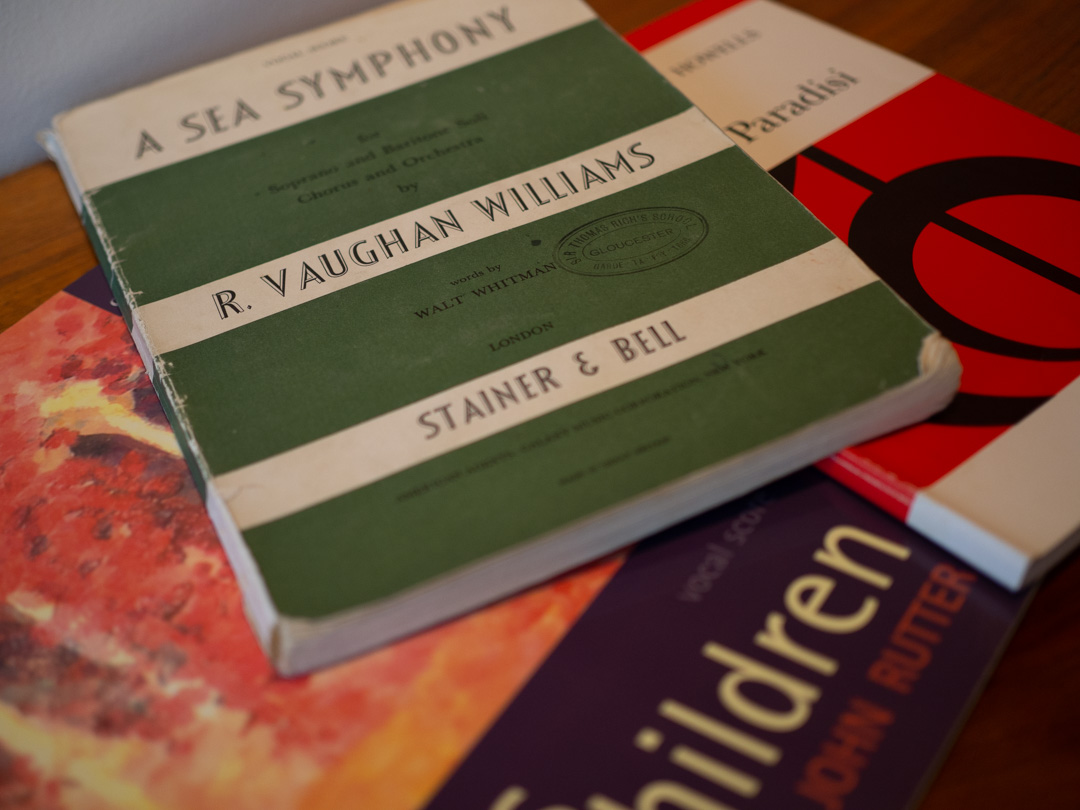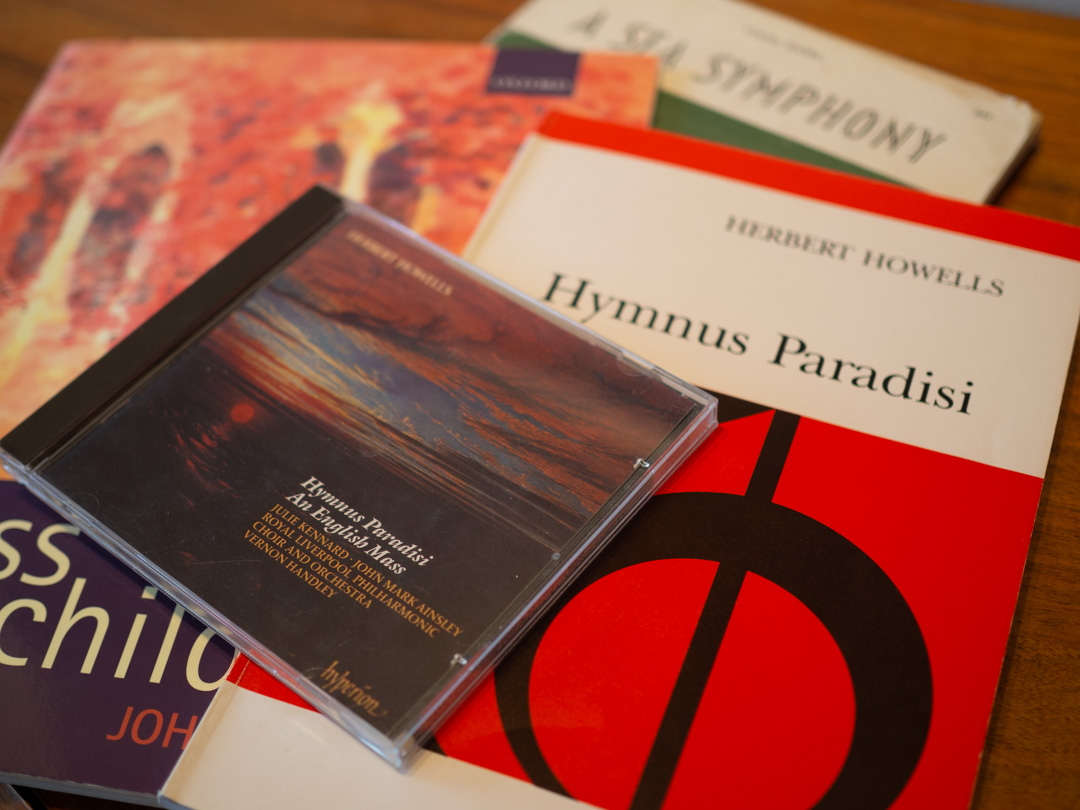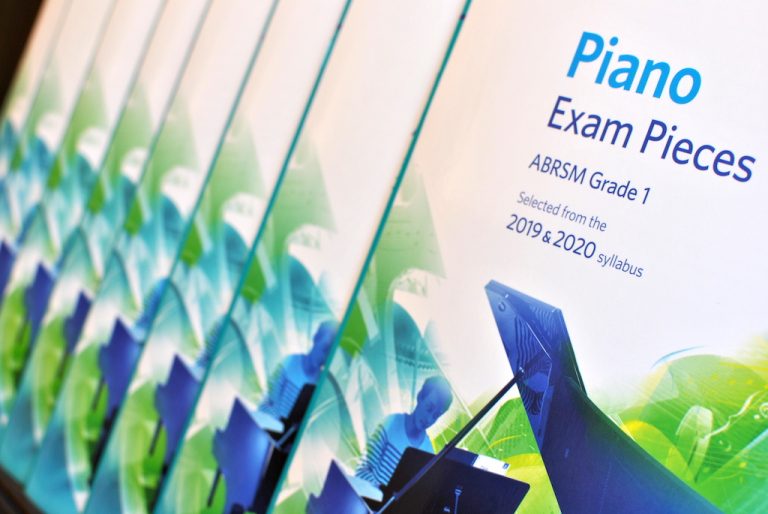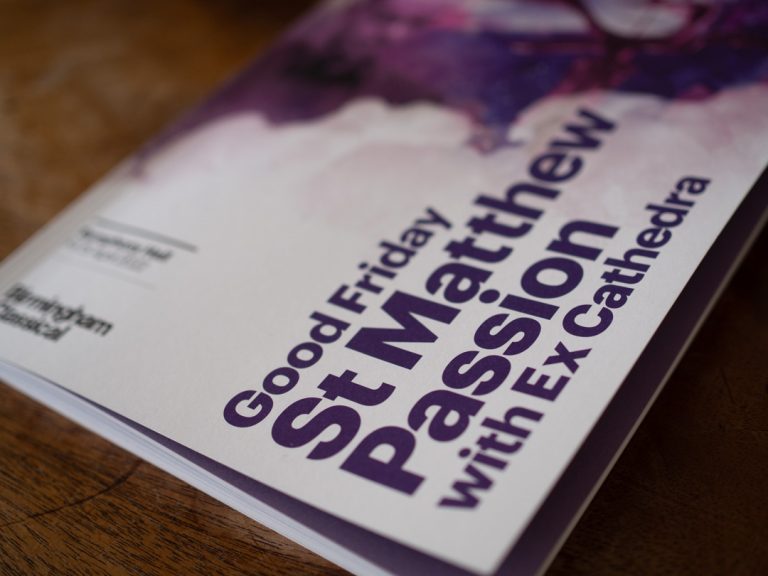[This post contains affiliate links]
When I was growing up, there seemed to be a fairly clear divide between music which was either ‘pop’ or ‘classical’. Of course, it wasn’t as clearcut as that, but now, that divide feels increasingly blurred. In this blog post, I’m going to share 10 classical albums I couldn’t live without.
I’ve always been exposed to classical music, but my personal interest was sparked when, aged nine, I was taken to Classical Spectacular, a concert of popular classical favourites which took place at what was then Birmingham’s National Indoor Arena. I might have fallen asleep during Ravel’s Bolero, but the experience left a lasting impression. Whilst there have always been occasional pop songs and artists which appealed to me over the years, I’ve always been a true classical music lover at heart. It’s classical albums which have always filled my shelves.
While you’re reading this blog post, think about which your classical albums might be: why not let me know?

1. Hildegard of Bingen: A Feather on the Breath of God
Like many of the classical albums here, I can’t remember exactly how I came across this one. If I heard a piece of music I liked, I was always determined to find out what it was. In the days before Google, this was much harder. Record catalogues had to be checked manually and tunes hummed to unsuspecting staff in record shops.
I owned this CD long before campaigns for better recognition of female composers was a ‘thing’. The album was also my first introduction to the music of Emma Kirkby, and I’m sure, like many others, I’ve gone on to enjoy so many of her other records which span such a huge range of musical genres.
The music has an etherial quality, an other worldliness which transports you to another time and place. Perhaps another theme amidst these chosen recordings.
A Feather on the Breath of God (1981)
Emma Kirkby with Gothic Voices, directed by Christopher Pye
Hyperion Records, CDA660039

2. Vaughan Williams: A Sea Symphony
I had the great privilege of hearing Richard Hickox conduct two of the Vaughan Williams symphonies at the Royal Festival Hall just a few months before his untimely death in 2008. I’ve since gone on to collect all his other recordings of the Vaughan Williams symphonies on the Chandos label.
I was first introduced to the music of Vaughan Williams as his Fantasia on a Theme by Thomas Tallis was used as background music on the first Hannah Hauxwell documentary, Too Long a Winter which I became very interested in. My love of Vaughan Williams really cascaded from there. I’ve chosen A Sea Symphony here as it’s probably my favourite, but I could have equally chosen nos. 2, 5, 6 or 7! It was a great joy to hear A Sea Symphony at the Royal Festival Hall just a few years ago.
Vaughan Williams: A Sea Symphony (2006)
Susan Gritton soprano, Gerald Finley baritone, London Symphony Chorus, London Symphony Orchestra, connected by Richard Hickox
Chandos, CHSA 5047
3. Howells: Hymnus Paradisi
In the mid-1990s, BBC Television aired a programme about Salisbury Cathedral Choir called Heavenly Voices. It was my first introduction to the music of Herbert Howells as they sang excepts from his Collegium Regale canticles. Howells’ compositions have been much-maligned over the years, many saying he should have concentrated on instrumental writing rather than church music. Nevertheless, his choral music is sung daily in churches and cathedrals all over the world.
There is something very special about Howells’ choral music which I just can’t put my finger on. It speaks to me in a way no other music does. His monumental work, Hymnus Paradisi, was in-part inspired by the death of his son, Michael, from polio, in 1935.
Howells: Hymnus Paradisi (1991)
Julie Kennard soprano, John Mark Ainsley baritone, Royal Liverpool Philharmonic Choir, Royal Liverpool Philharmonic Orchestra, conducted by Vernon Handley
Hyperion Records, CDA66488
4. Bryars: Jesus’ Blood Never Failed Me Yet
I’m not sure whether I should admit to the fact that this was probably my first introduction to what I considered to be ‘modern music’. Originally conceived in 1971, Bryars found that an unused clip of a homeless man singing a short hymn was perfectly in tune with his piano. He subsequently improvised an accompaniment and found that that this created an effective 13-bar loop.
Described as minimalist in style, the piece is a evocation of the emotional power of music. I was lucky enough to hear the piece performed live at St George’s Bristol some years ago. Like many others, I’ve been mesmerised by this piece, with its hypnotic loop of sound.
Bryars: Jesus’ Blood Never Failed Me Yet (1993)
Point Music, 438 823-2

5. Rutter: Mass of the Children
The music of John Rutter has, sadly, become a bit of a joke over the years. People have literally laughed in my face* when they hear I enjoy listening to Rutter’s music. But, I always have, and I always will. One of the very first CDs we owned was his Requiem. One of the first choral pieces I heard sung live was, I’m sure like many others, his setting of All Things Bright and Beautiful.
*much like Einaudi et al…the list goes on
Love it or hate it, Rutter’s music is hugely popular, perhaps more so outside the UK. He has been composing for over 50 years and sometimes we forget that some of his most popular works were written long before I was born.
I’m happy to stand up and be a proud Rutter fan (like everything, in moderation) and his Mass of the Children is a work which I return to time and time again. It’s not as well-known as it should be. The disc also contains two other of my favourite Rutter anthems, Wings of the Morning and To every thing there is a season.
Rutter: Mass of the Children (2003)
Joanne Lunn soprano, Roderick Williams baritone, The Cambridge Singers, Cantate Youth Choir, City of London Sinfonia, conducted by John Rutter
Collegium Records, COLCD129
6. Walton: Belshazzar’s Feast
Belshazzar’s Feast is an exhilarating work with so much packed into its 34 minutes, your feet feel hardly as if they’ve touched the ground. Again, it’s a work I’ve been very lucky to hear twice. Once at the Royal Festival Hall and again, fairly recently at Birmingham’s Symphony Hall.
From its style, it’s hard to believe it was first performed in 1931. It was initially banned from being performed in cathedrals as the Church of England deemed the text, selected from the Book of Daniel, to be inappropriate.
To keep up-to-date with news and updates, and to receive my monthly newsletter, Creative Notes, full of content exclusive to subscribers, scroll down to add your name and email address below, or click here.
This is a work to blast away the cobwebs (maybe even to drown out the neighbours), but equally, there are moments of great tenderness. The album in particular also captures Sir David Willcocks’ unique relationship with The Bach Choir, an association which lasted 38 years with Willcocks as Director.
Walton: Belshazzar’s Feast (1989)
Gwynne Howell baritone, The Bach Choir, The Philharmonia, conducted by Sir David Willcocks
Chandos CHAN 8760
7. Stanford: Symphony No. 6
Charles Villiers Stanford (1852-1924) is, of course, primarily known as a composer of choral music, yet his huge orchestral output (seven symphonies alone) is virtually absent from the repertoire. Stanford is another composer where I find myself asking “what went wrong?” I suppose, like so many (particularly English) composers, his music has gone out of fashion. Mind you, I read an article the other day, saying that Victorian ‘brown furniture’ is making a comeback, so maybe the Stanford revival is drawing closer?
I have no recollection of how I came across the Stanford symphonies; I’ve certainly never heard any live (am I likely to in my lifetime I ask myself?). Symphony No. 6 is dedicated to the memory of George Frederick Watts, a British painter and sculptor. For me, the poignant second movement ‘Adagio e motto espressivo’ is exquisite. For all the fireworks of the opening, this is the orchestra at its most intimate.
Stanford: Symphony No. 6 (1988)
Ulster Orchestra, conducted by Vernon Handley
Chandos CHAN 8627

8. Shostakovich: Symphony No. 7 ‘Leningrad’
I have to say, I’m not a fan of all Shostakovich’s output, but for me, the symphonies are outstanding. That said, I don’t think Shostakovich symphonies are for the faint-hearted!
I was a bit torn writing this because equally, I could have chosen Symphony No. 10. Symphony No. 7 is his longest, and at around 75 minutes, is one of the longest in the repertory. Maxinm Litvinov wrote that the symphony is about “terror, slavery, and oppression of the spirit”, stating that later, Shostakovich admitted it was about “tyranny and totalitarianism”. Themes for our times? I think so.
It’s hard not to be carried along by the sheer force and power of the music here. It’s unsettling and insistent, but it’s still one of the classical albums I couldn’t live without.
Shostakovich: Symphony No. 7 ‘Leningrad’ (2012)
Royal Liverpool Philharmonic Orchestra, conducted by Vasily Petrenko
Naxos 8.573057
9. Finzi: Cello Concerto
Like many, my first introduction to the music of Gerald Finzi was through his clarinet music, both the Five Bagatelles and the Clarinet Concerto. Then came his many wonderful songs and song cycles.
His orchestral and chamber music is, in my view, underrated. His Cello Concerto is one of the last works composed, his final opus, for he died the year after it was completed. It’s a glimpse into what might have developed further had he lived longer. The first performance of the Cello Concerto was given on the radio the night before he died.
Again, it’s a work I’ve never seen programmed. It’s a shame, because I’m sure audiences would enjoy it. The third movement even has a feeling of ‘hoe down’ to it! Some of this is pure film music. There are echoes of the Clarinet Concerto, but perhaps Finzi’s greatest success here is his full use of the cello and its many sounds.
Incidentally, the ‘B side’, Kenneth Leighton’s suite, Veris Gratia, is also beautiful and a piece which should be heard more widely.
Finzi: Cello Concerto (1986)
Raphael Wallfisch cello, Royal Liverpool Philharmonic Orchestra, conducted by Vernon Handley
Chandos CHAN 8471
10. Myaskovsky: Symphonies Nos. 15 and 27
Ask me how I came across Myaskovsky’s symphonies, and I have no idea! Mention his name, and I’ve yet to meet anyone who’s heard of him. He wrote 27 symphonies between 1908 and 1949. That’s pretty impressive! He also wrote 11 string quartets and nine piano sonatas! He must have been exhausted, although he lived to the age of 69.
Described as the father of the Russian symphony, despite his huge output, his music has never really caught on. It has, inevitably, been eclipsed by that of Prokofiev and Shostakovich. So, will there be a Myaskovsky revival? There certainly should be. His symphonies are full of colour, and when you listen to them, you can’t help but recognise their pure ‘Russian’ flavour.
I singled out Nos. 15 and 27 here, but there are many others, and they all deserve to be better known.
Myaskovsky: Symphonies Nos. 15 and 17 (1991-1993)
Russian Federation Academic Symphony Orchestra, conducted by Evgeny Svetlanov
Alto ALC 1021 (Olympia OCD 741)
Well, there goes, 10 classical albums I couldn’t live without. Admittedly, I could have chosen another 10, and another 10 beyond that. Probably another 10 beyond that too! Maybe this a the problem of owning over 700 CDs?
I hope that amongst these classical albums you might make some new discoveries.
Which classical albums would be in your top 10? Why not share them on social media and tag me. I’d love to know what your choices would be, and even more especially, whether there are any overlaps.
Pin for later:





